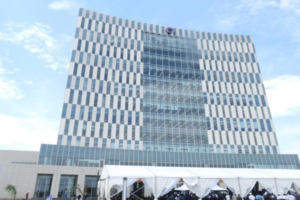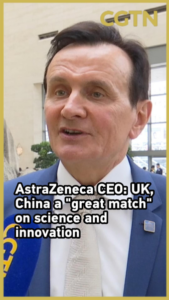
Xi’an and Rome: Bridging Civilizations Through Millennia of Exchange
Exploring the enduring legacies of Xi’an and Rome as ancient capitals, their architectural marvels, and their historical role in bridging Eastern and Western civilizations through trade and cultural exchange.

Zhang & Mertens Triumph at Australian Open Women’s Doubles
Chinese mainland’s Zhang Shuai and Belgium’s Elise Mertens claim 2026 Australian Open women’s doubles title, showcasing international sports collaboration.

He Xining’s 43-Point Effort Not Enough as Shenzhen Falls to Shanghai in CBA Clash
He Xining scores a season-high 43 points, but Shenzhen Leopards’ five-game win streak ends in a 101-92 road loss to Shanghai Sharks. Key plays and standings impact analyzed.

AstraZeneca Pledges $15B in China as UK Strengthens Science Ties
AstraZeneca announces $15 billion investment in China through 2030, bolstering UK-China science ties amid Prime Minister Starmer’s diplomatic engagement.
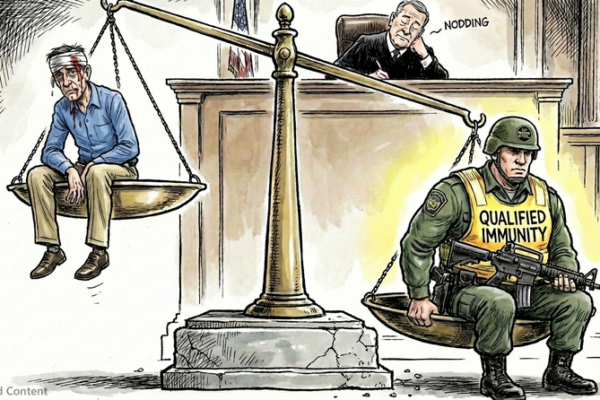
Six Years After ‘I Can’t Breathe’: Minneapolis Police Accountability Debate Intensifies
Six years after the ‘I Can’t Breathe’ protests, Minneapolis grapples with qualified immunity and stalled police accountability reforms.
U.S. Approves $15.7B Arms Deals to Israel, Saudi Arabia Amid Regional Tensions
The U.S. approves $15.7 billion in arms sales to Israel and Saudi Arabia, bolstering regional allies amid rising Middle East tensions linked to Iran unrest.
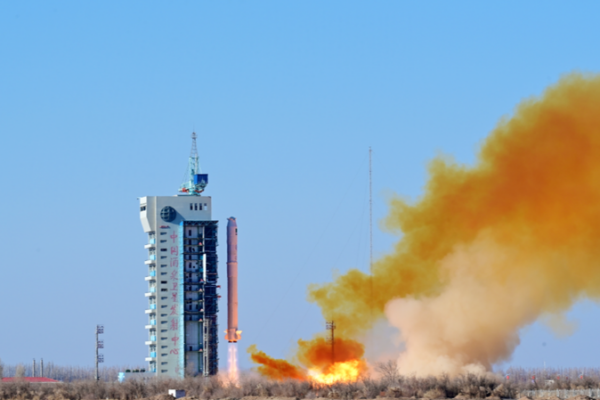
China Strengthens Ties with Algeria Through Latest Satellite Launch
China launches AlSat-3B satellite with Algeria, enhancing land planning and disaster response. Part of a bilateral space collaboration initiated in 2023.
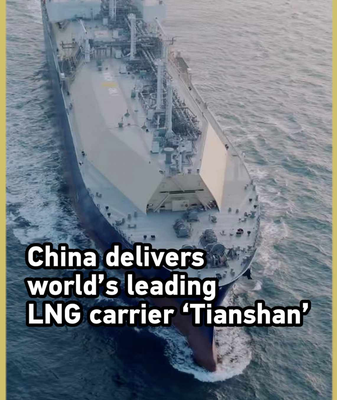
China Launches Advanced LNG Carrier Tianshan Ahead of Schedule
China delivers the Tianshan, a next-gen LNG carrier with reduced emissions, enhancing energy infrastructure and supporting climate goals in 2026.

How ‘New Concept English’ Forged a Bridge Between China and the UK
Discover how ‘New Concept English’ became a cornerstone of China’s reform era, fostering education and cultural ties with the UK through Pearson’s enduring partnership.

Journalists’ Arrest at ICE Protest Ignites Press Freedom Debate
Two journalists arrested while covering a Minnesota ICE protest were released Friday, sparking nationwide press freedom concerns as protests persist.

Mythical Horses of Ancient China Inspire Modern Artistry
Bilibili artist Shan Ze revives ancient horse deities from China’s Classic of Mountains and Seas, blending mythology with modern digital art during Spring Festival 2026.

AI Meets Tradition: Redefining Luck in the 2026 Year of the Horse
Explore how AI is transforming Lunar New Year traditions in 2026, blending ancient customs with cutting-edge technology to create new cultural experiences across Asia.
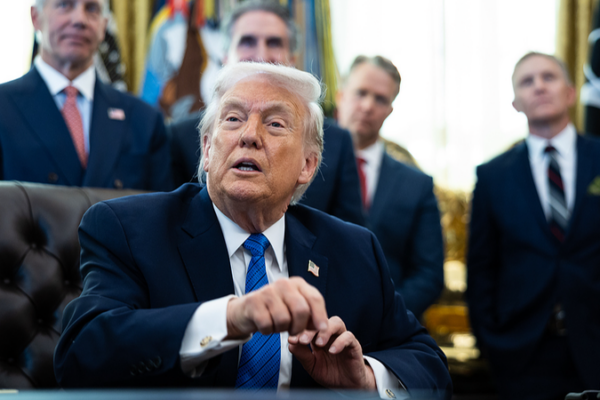
U.S. Government Enters Partial Shutdown, Resolution in Sight
U.S. government enters partial shutdown as Congress misses 2026 budget deadline; resolution expected early next week with limited disruptions.
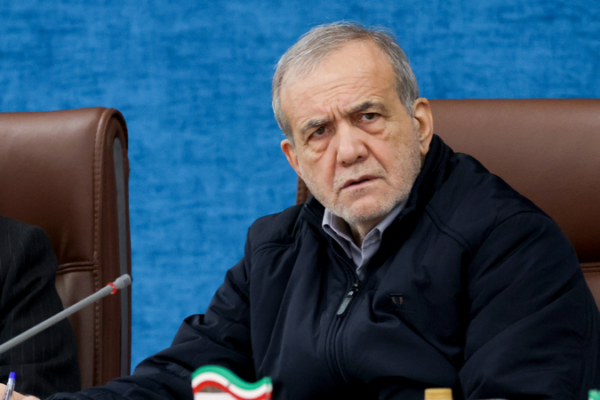
Iran Proposes ‘Dignity-Based’ Dialogue Amid U.S. Military Posturing
Iran expresses willingness for ‘dignity-based’ talks with the U.S. amid heightened military tensions. President Pezeshkian emphasizes dialogue while Trump issues warnings.
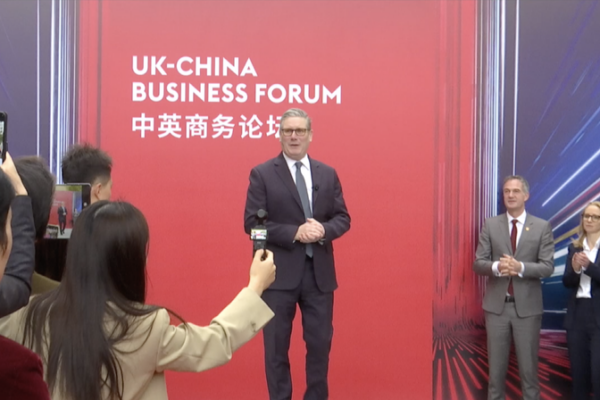
UK PM Starmer Advocates Enhanced UK-China Collaboration at Beijing Forum
UK Prime Minister Keir Starmer pushes for stronger UK-China economic collaboration at Beijing business forum, highlighting green energy and tech partnerships.

Aid Trucks Face 21 Denials Amid Gaza Humanitarian Crisis
Despite the 2026 Sharm El Sheikh ceasefire, 21 aid convoys have been denied entry to Gaza this month, worsening medical and food shortages across the conflict-ravaged territory.
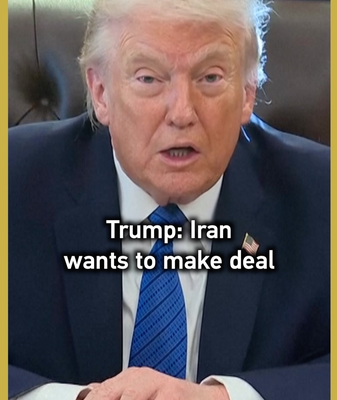
Trump Signals Openness to Iran Deal Amid Global Scrutiny in 2026
Former US President Donald Trump hints at potential negotiations with Iran in 2026, emphasizing diplomatic flexibility amid ongoing global tensions.

Chinese Military Conducts Patrols Near Huangyan Dao Amid Regional Tensions
The Chinese military conducted patrols near Huangyan Dao, emphasizing sovereignty amid rising regional tensions in the South China Sea.

Xinjiang’s Ice-Snow Economy Fuels Regional Growth in 2026
Xinjiang transforms its winter landscape into economic powerhouse through innovative ice-snow tourism models and cross-sector integration, driving regional growth in 2026.
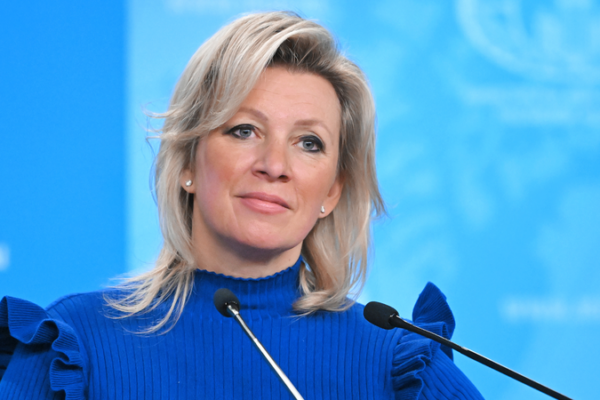
Russia Revokes Exoneration of 14 Japanese WWII War Criminals
Russia reinstates war crime status for 14 Japanese nationals involved in WWII-era operations against Soviet Union, reversing 1990s exoneration decisions.
